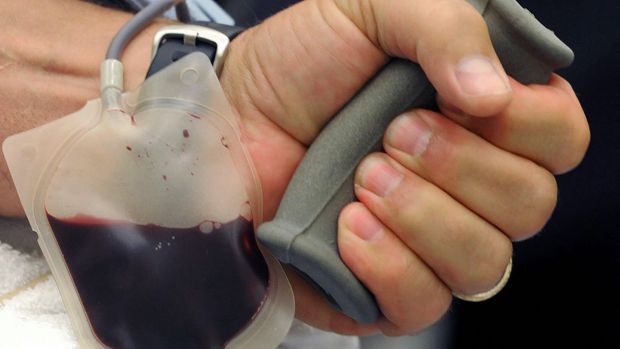
The scrapping of the ban could lift the annual blood supply by as much as 4 per cent, experts said. Photo: AP
Washington: The US Food and Drug Administration has announced it would scrap a decades-old lifetime prohibition on blood donation by gay and bisexual men, a change that experts said was long overdue and could lift the annual blood supply by as much as 4 per cent.
The FDA enacted the ban in 1983, early in the AIDS epidemic. At the time, little was known about the human immunodeficiency virus, which causes the disease, and there was no quick test to determine whether somebody had it. But science – and the understanding of HIV in particular – has advanced in the intervening decades, and on Tuesday the FDA acknowledged as much, lifting the lifetime ban but keeping in place a block on donations by men who have had sex with other men in the past 12 months.
In a statement, the agency said it had “carefully examined and considered the scientific evidence” before changing the policy. It said it intended to issue a draft guidance detailing the change in 2015.
The shift puts the United States on par with Australia, where the Red Cross does not accept donations from men who have had sex with other men in the past 12 months. Britain adjusted its lifetime ban in favour of a 12-month restriction in 2011.
Men’s health advocates welcomed the move, saying that the ban was not based on the latest science and that it perpetuated stigma about gay men as a risk to the health of the nation. Legal experts said the change brings an important national health policy in line with other legal and political rights, such as permitting gay individuals to marry and to serve openly in the military.
“This is a major victory for gay civil rights,” said I. Glenn Cohen, a law professor at Harvard University who specialises in bioethics and health. “We’re leaving behind the old view that every gay man is a potential infection source.”
He said, however, that the policy was “still not rational enough”.
The shift will have far-reaching implications for the nation’s blood supply. The Williams Institute at the University of California, Los Angeles, has calculated that the change could add about 317,000 pints of blood to the nation’s supply annually, an increase of 2 per cent to 4 per cent.
About 8.5 per cent of U.S. men – or about 10 million people – report having had sex at least once with a man since turning 18, according to the institute. The new policy will exclude the 3.8 per cent of U.S. men who report having had a male sexual partner in the past year, a group that could double the potential new supply, the institute said in a report.
New York Times
